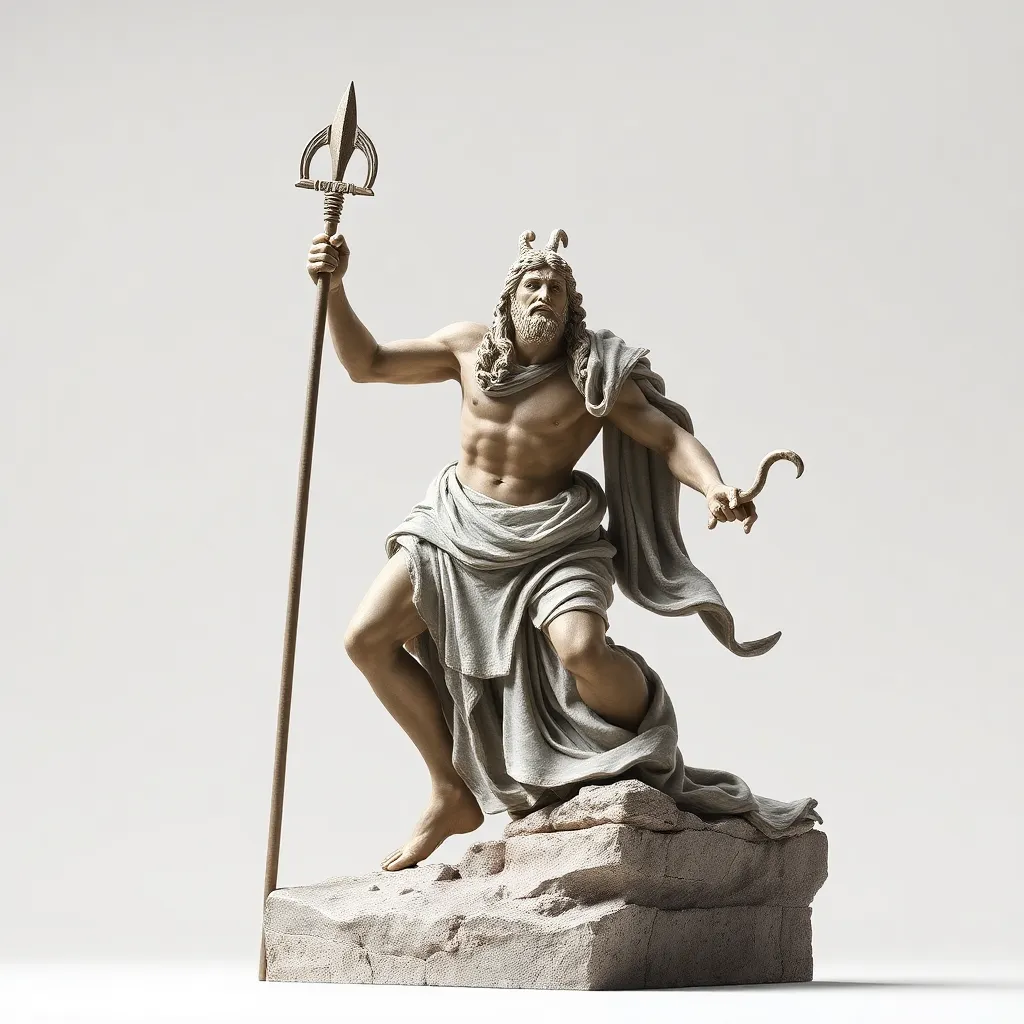The Role of Perseus in the Development of Greek Tragedy
I. Introduction
Greek tragedy stands as a monumental achievement in ancient literature, reflecting the complexities of human experience, morality, and the divine. These dramatic works not only entertained but also served as vehicles for philosophical inquiry and social commentary. Among the pantheon of mythological figures whose tales have been woven into the fabric of Greek tragedy, Perseus emerges as a particularly influential character. His myth encapsulates themes of heroism, fate, and the interplay between human agency and divine will, making him a pivotal figure in the evolution of tragic literature.
This article explores the profound influence of Perseus on Greek tragedy, examining his myth, the themes associated with his character, and the legacy he has left in the realm of dramatic arts.
II. Historical Context of Greek Tragedy
The origins of Greek tragedy can be traced back to the 6th century BCE in ancient Athens, where it evolved from rituals honoring the god Dionysus. Early tragedies were performed during festivals, particularly the City Dionysia, and featured a chorus that would chant and dance while narrating stories.
Key features of Greek tragic plays include:
- Complex characters facing moral dilemmas.
- Themes of fate, divine intervention, and human suffering.
- A structure that typically follows a pattern of exposition, rising action, climax, and resolution.
Mythological figures, such as Perseus, played a crucial role in these tragedies, providing a rich source of narrative and thematic material that resonated with audiences and explored the human condition.
III. The Myth of Perseus
The myth of Perseus is a tale of adventure, destiny, and divine favor that has captivated audiences for centuries. Born to Danaë and Zeus, Perseus was prophesied to bring about the death of his grandfather, King Acrisius. To escape this fate, Acrisius cast Danaë and her infant son into the sea, but they were rescued by the god Poseidon.
Perseus’ most famous exploits include:
- Slaying the Gorgon Medusa, whose gaze could turn men to stone.
- Rescuing Andromeda from a sea monster.
- Ultimately fulfilling the prophecy by inadvertently killing Acrisius.
Central themes in Perseus’ myth include heroism, the struggle against fate, and the influence of the gods. As an archetype of the tragic hero, Perseus embodies the qualities of bravery and determination while also confronting the consequences of his actions.
IV. Perseus in Tragic Literature
Perseus has been featured in various tragic works, notably those by playwrights such as Aeschylus and Euripides. These tragedies explore different facets of his character and the implications of his myth.
In Aeschylus’ works, Perseus is often portrayed as a noble hero, emphasizing his bravery and the divine support he receives from the gods. Conversely, Euripides presents a more complex view, examining the darker aspects of heroism and the resulting consequences of his actions.
The narrative of Perseus has significantly impacted the structure of tragic plots by:
- Highlighting the conflict between human desires and divine wills.
- Introducing moral dilemmas faced by the hero.
- Creating a framework for exploring the tragic flaws within characters.
V. Themes Associated with Perseus in Tragedy
Several themes resonate through the story of Perseus, making his myth a rich source for tragic exploration:
- Hubris: Perseus, like many tragic heroes, grapples with the tension between human ambition and the limits set by the gods.
- Vengeance: The repercussions of his actions often lead to cycles of revenge, reflecting the moral complexities inherent in his choices.
- Redemption: Perseus’ journey is also one of seeking redemption, highlighting the hero’s capacity for growth and change.
When compared to other tragic figures, such as Oedipus and Agamemnon, Perseus’ journey illustrates a unique blend of heroic triumph and tragic consequences, offering moral lessons that resonate through time.
VI. Artistic Representations of Perseus in Tragedy
Perseus has been a prominent figure in various artistic representations throughout ancient Greece, from vase paintings to sculptures and theatrical performances. His dramatic encounters, particularly with Medusa, have inspired countless visual interpretations.
In performance art, the staging of Perseus’ story has played a critical role in conveying the emotional weight of his journey. Elements such as:
- Costuming that reflects divine favor and heroic attributes.
- Choreography that emphasizes the struggle against fate.
- Use of dramatic lighting to highlight key moments of tension.
These artistic choices have contributed to the enduring legacy of Perseus in theater and continue to influence modern adaptations of his story.
VII. The Legacy of Perseus in Tragic Tradition
Perseus’ character has had a lasting influence on subsequent playwrights and genres. His narrative has inspired interpretations across various artistic mediums, including literature, film, and modern theater. The themes of struggle, fate, and resilience that define his myth remain relevant today.
In contemporary interpretations, Perseus is often viewed as a symbol of human struggle against insurmountable odds, embodying the resilience of the human spirit. This enduring relevance underscores the timeless nature of mythological narratives and their ability to resonate with audiences across generations.
VIII. Conclusion
In conclusion, the significance of Perseus in Greek tragedy cannot be overstated. His myth not only serves as a captivating story of heroism and adventure but also provides profound insights into the human condition and the complexities of morality. The interplay between myth and dramatic literature enriches our understanding of tragedy and its evolution over time.
As we reflect on the impact of mythological figures like Perseus, we are called to explore further the intricate relationship between mythology and the development of tragic narratives, recognizing the lessons they impart to contemporary society.




